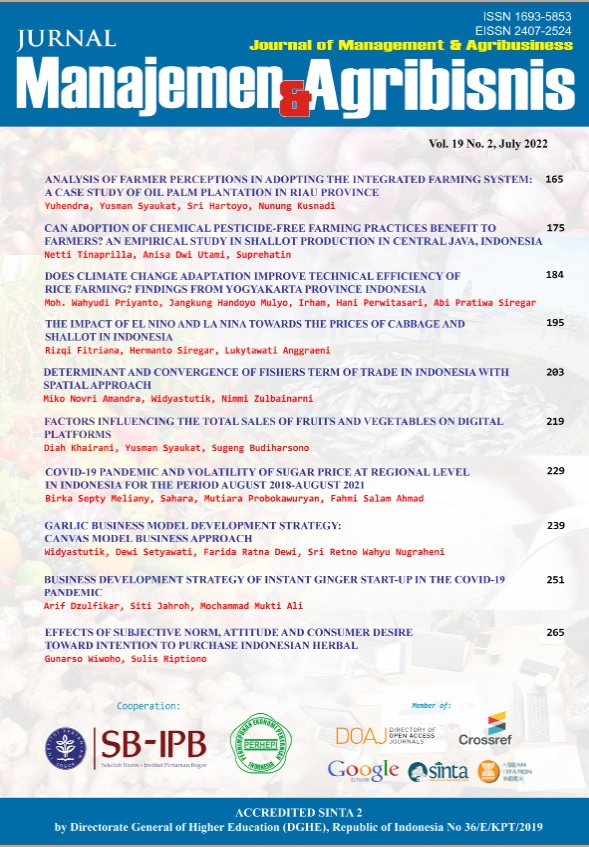The Impact of El Nino and La Nina Towards The Prices of Cabbage and Shallot in Indonesia
Abstract
This study examines the impact of El Nino and La Nina on cabbage and shallot prices by applying the spatial correlation analysis method with 34 provinces from 2010 to 2020 to classify affected areas. The next method is a spatial panel with the main variables: rainfall as an indicator of El Nino and La Nina, commodity prices, spatial effects, and other supporting variables such as income, productivity, wages, and COVID-19 dummy. To get the output model, it is necessary to analyze the selection of the best model between the Structural Equation Model and the Spatial Autoregressive. The results of the study provide findings: (1) there are 16 provinces affected by El Nino and La Nina in Indonesia; (2) the best spatial panel model used is Spatial Autoregressive with the resulting La Nina has a large effect on increasing of cabbage and shallots prices because excess soil water content will cause crops and bulbs to rot easily. The spatial aspect has a significant influence, meaning that the price of cabbage and shallots in one area will affect the prices of the two commodities in other areas through distribution patterns. Policy implications of the impact of El Nino and La Nina in this study are classified into managerial, mitigation, and adaptation strategies including the policy of the Regional Inflation Control Team in the form of inter-regional cooperation.
Keywords: cabbage, el nino, la nina, shallot, spatial
Authors
Authors who publish with this journal agree to the following terms:
- Authors retain copyright and grant the journal right of first publication with the work simultaneously licensed under a Creative Commons Attribution License that allows others to share the work with an acknowledgement of the work's authorship and initial publication in this journal.
- Authors are able to enter into separate, additional contractual arrangements for the non-exclusive distribution of the journal's published version of the work (e.g., post it to an institutional repository or publish it in a book), with an acknowledgement of its initial publication in this journal.
- Authors are permitted and encouraged to post their work online (e.g., in institutional repositories or on their website) prior to and during the submission process, as it can lead to productive exchanges, as well as earlier and greater citation of published work (See The Effect of Open Access).

